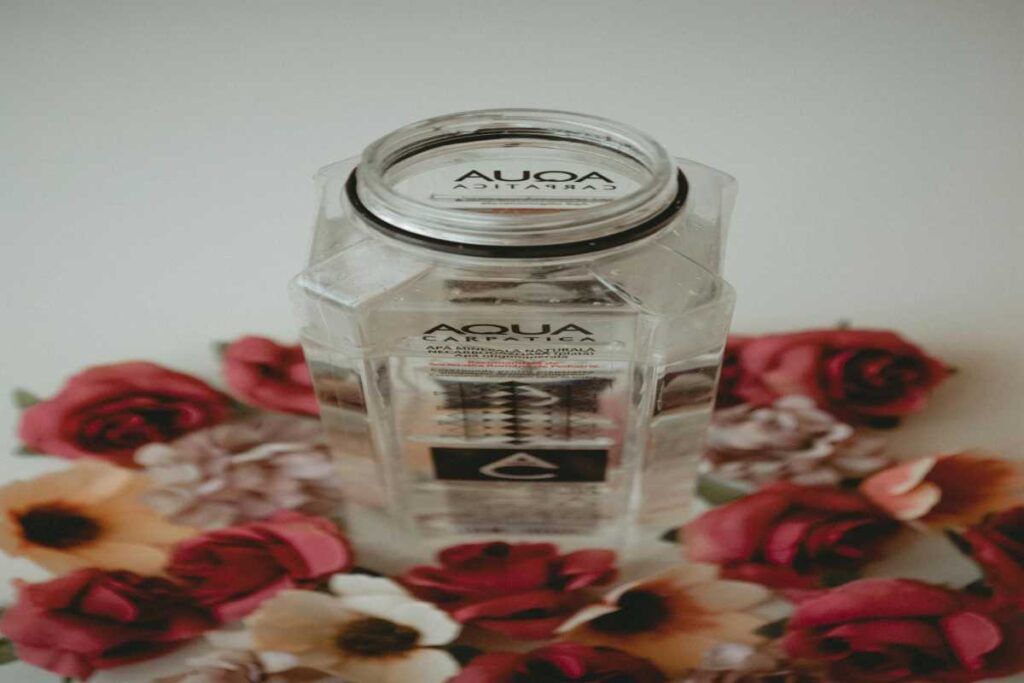Rose water is a popular beauty product derived from the distillation of rose petals. Known for its calming aroma and versatile skincare properties, it has been used for centuries in various cultures to improve skin health. Whether you’re looking to hydrate, soothe, or tone your skin, rose water can be a gentle yet effective addition to your skincare routine. Here’s everything you need to know about rose water for your skin, including its benefits, how to use it, and potential side effects.
Benefits of Rose Water for Skin
- Hydrates and Refreshes the Skin
Rose water is an excellent hydrating agent, helping to replenish moisture levels in the skin. It’s particularly beneficial for dry or dehydrated skin.
- How it helps: It helps restore moisture balance, leaving the skin feeling soft, refreshed, and rejuvenated.
- Benefits: Ideal for all skin types, especially dry or sensitive skin, as it hydrates without being greasy.
- Soothes Irritated Skin
Thanks to its anti-inflammatory properties, rose water is known for its ability to calm irritated or inflamed skin, including conditions like eczema, psoriasis, and sunburn.
- How it helps: The soothing properties of rose water help reduce redness, irritation, and inflammation on the skin.
- Benefits: Provides relief from skin conditions like acne, rosacea, and sunburn.
- Acts as a Natural Toner
Rose water is a mild astringent that helps tighten pores, balance oil production, and remove excess dirt and oil from the skin.
- How it helps: It naturally tightens and tones the skin without stripping it of its natural moisture, making it an ideal toner.
- Benefits: Helps minimize the appearance of pores, reduces excess oil, and promotes a smoother complexion.
- Has Antioxidant Properties
Rose water is rich in antioxidants like vitamin C and flavonoids that protect the skin from oxidative stress, free radicals, and environmental damage.
- How it helps: Antioxidants fight free radical damage, helping to prevent premature aging and protect against pollution and UV damage.
- Benefits: Helps protect the skin from environmental stressors, reducing the appearance of fine lines and wrinkles.
- Balances Skin’s pH Level
Rose water can help maintain the natural pH of the skin, which is important for overall skin health and preventing irritation.
- How it helps: Its slightly acidic nature helps balance the skin’s pH, ensuring the skin remains healthy and free from imbalances like dryness or excessive oil.
- Benefits: Supports the skin’s natural barrier, promoting a healthy, clear complexion.
- Fights Acne and Blemishes
Rose water has mild antibacterial properties, which help reduce acne-causing bacteria on the skin. It also helps to reduce the appearance of blemishes and scars.
- How it helps: By reducing bacteria and soothing inflammation, rose water can help calm active acne and prevent new breakouts.
- Benefits: Ideal for acne-prone skin, it helps clear up blemishes and prevent future breakouts.
- Promotes Skin Healing
Rose water can aid in the skin’s natural healing process, helping to reduce the appearance of scars, cuts, and other skin imperfections.
- How it helps: The anti-inflammatory and antiseptic properties of rose water can accelerate the healing of minor wounds, cuts, or abrasions.
- Benefits: Helps speed up healing time and reduces scarring from minor injuries or acne.
How to Use Rose Water for Skin
- As a Toner
After cleansing your face, apply rose water with a cotton ball or pad to tone the skin. It helps remove any remaining impurities and tightens pores. - As a Hydrating Mist
Spray rose water directly onto your face for an instant burst of hydration. This is especially refreshing on hot days or after a workout. - In Face Masks
You can mix rose water with ingredients like honey, yogurt, or clay to create a soothing face mask. Apply the mask for 10-15 minutes before rinsing off. - As a Makeup Remover
Rose water can be used to remove makeup gently while hydrating the skin. Soak a cotton pad with rose water and swipe over your face to remove makeup. - In a DIY Skin Serum
Mix rose water with essential oils like lavender or tea tree oil to create a soothing and healing serum for your skin. Use it before bedtime to promote skin regeneration.
Potential Side Effects of Rose Water

While rose water is generally safe for most skin types, there are a few potential side effects to be aware of:
- Skin Irritation or Allergies
Some people may be allergic to rose water, which can cause redness, itching, or a rash. Always perform a patch test before using it on your face or body. - Dryness or Tightness
Although rose water is hydrating, it can be drying for some individuals, particularly those with extremely sensitive or dry skin. Use it in moderation and follow up with a moisturizer. - Not a Substitute for Sunscreen
While rose water contains antioxidants, it does not provide adequate protection against UV rays. Always wear sunscreen in addition to using rose water.
Conclusion
Rose water is a versatile and natural product that can offer a wide range of benefits for your skin, from hydration to soothing irritation and fighting acne. Its gentle nature makes it suitable for most skin types, and its pleasant aroma adds an extra touch of luxury to your skincare routine. As with any skincare product, it’s important to patch-test and be mindful of any adverse reactions, but overall, rose water can be a wonderful addition to your daily regimen.
